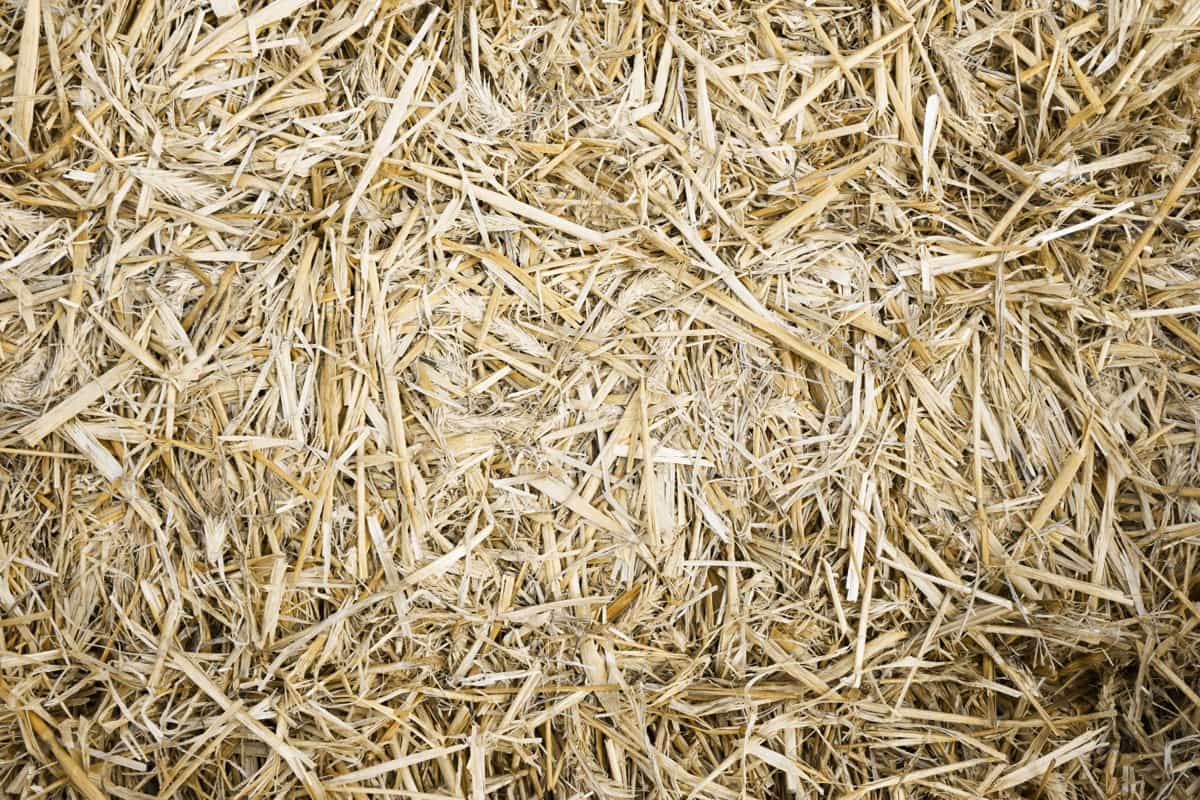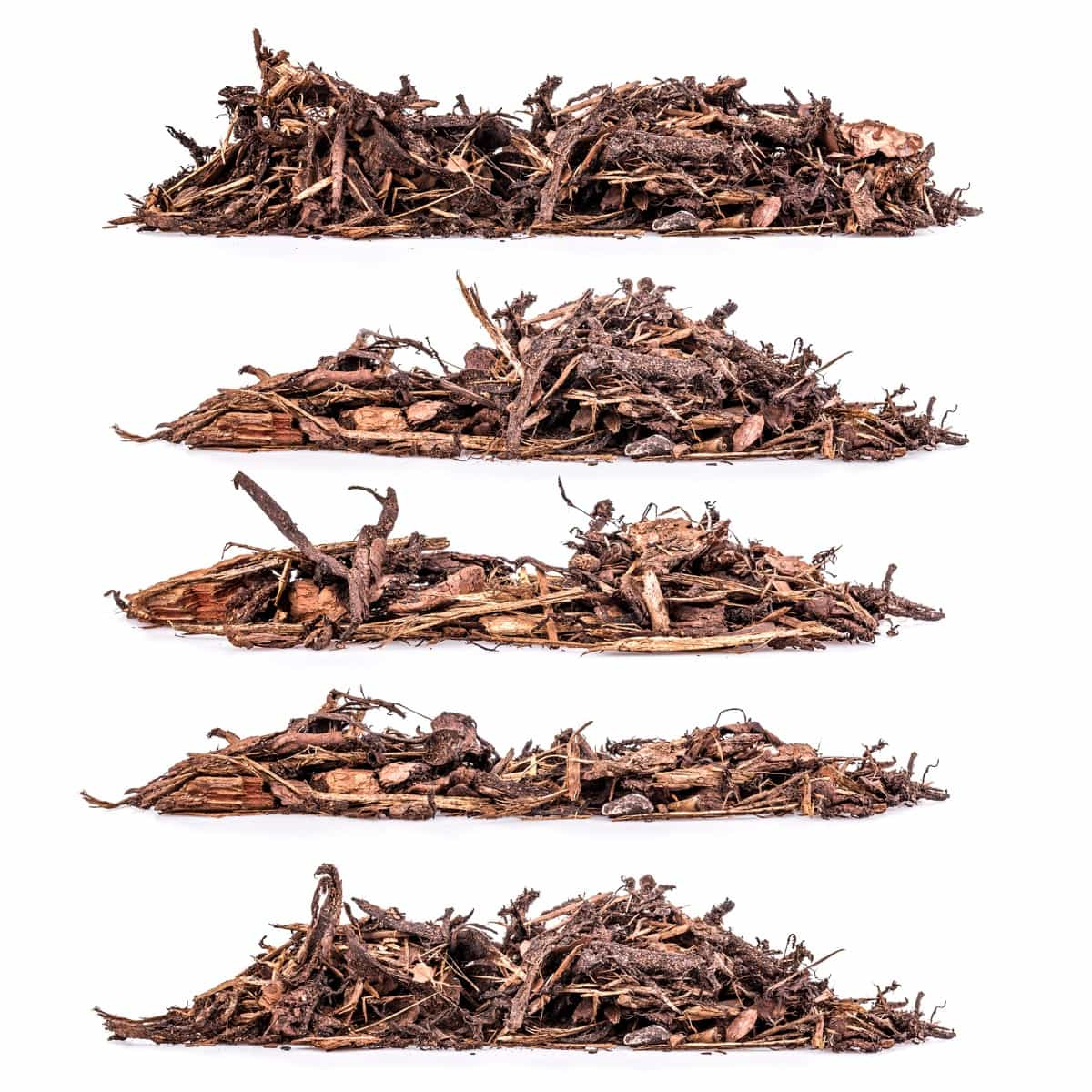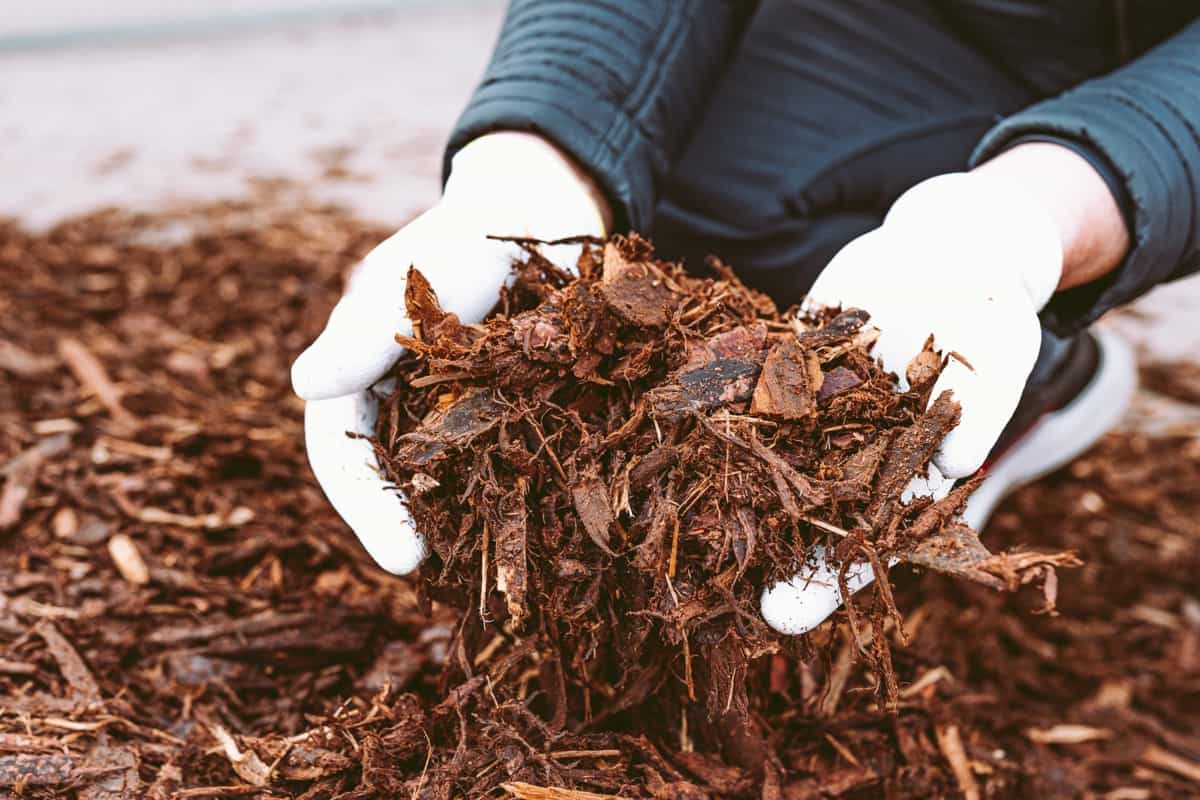Mulching is an essential practice that can greatly benefit your plants and help you achieve a thriving garden. It acts as a shield against harsh weather conditions, helps retain moisture in the soil, suppresses weeds, and even improves soil health over time. It encourages beneficial microorganisms such as earthworms to thrive while preventing erosion caused by heavy rain or wind.

Best Mulch Materials for Your Garden
Organic Mulch vs Inorganic Mulch: Which One is Right for Your Garden?
Organic mulch originates from natural materials (like wood chips, straw, or compost). It offers numerous advantages for your plants and soil health. These organic mulches slowly break down over time, improving soil structure and adding soil nutrients. On the other hand, inorganic mulches are made from materials like rocks, gravel, or rubber. While they don’t provide any nutritional value to the soil, like organic mulches, they offer some unique benefits.
Inorganic mulches can help suppress weed growth effectively and are long-lasting compared to organic ones. Deciding which mulch is suitable for your garden depends on several factors, including personal preference and specific gardening goals. Organic mulch may be your best bet if you prioritize enriching your soil with nutrients naturally while promoting water retention. However, if weed control and longevity are more important than nutrient enrichment alone, inorganic options may suit you better.
The Benefits of Using Bark Mulch in Your Garden
The main advantage of using bark mulch in a garden is its ability to conserve moisture in the soil. As a protective layer, mulch helps prevent water evaporation, allowing plants to receive adequate hydration even during hot summer days. It acts as insulation by maintain the soil cooler in warmer months and warmer during colder seasons. This stability creates an optimal environment for root development and overall plant growth.
How to Choose the Best Mulch for Your Vegetable Garden
Select a mulch that will help retain moisture in the soil and suppress weed growth. Organic mulches such as straw or compost can be great options. Another essential factor to consider is the type of vegetables you are growing. Some plants prefer acidic soil, while others thrive in alkaline conditions. Additionally, think about how quickly the mulch will break down over time. If you plan on replanting your vegetable garden each year, fast-decomposing organic mulch like straw or grass clippings may be beneficial as they can add nutrients back into the soil.
In case you missed it: Tomato Farming with Mulch: How to Use Organic Materials for Better Soil Health and Yield

The Pros and Cons of Using Rock Mulch in Your Garden
Rock mulch is popular for many gardeners due to its durability and low maintenance. One of the main advantages of using rock mulch is that it can help conserve moisture in the soil, reducing the frequent watering. Additionally, rock mulch can provide excellent weed control, as it creates a barrier that prevents weed growth.
The main drawback is that rocks can absorb heat from sunlight and radiate it back into the surrounding area, leading to increased temperatures and drying out the soil. This may not be ideal for plants that prefer cooler conditions or gardens in hot climates.
The Benefits of Using Compost Mulch in Your Garden
Compost mulch adds nutrients to the soil and helps improve its structure and water-holding capacity. The main benefit of using compost mulch is that it enriches the soil with organic matter. Compost mulch also acts as a natural weed suppressor. Providing a layer of coverage over bare soil blocks sunlight, preventing them from germinating. This reduces the amount of time and effort spent on weeding.
How to Use Mulch to Improve Soil Health in Your Garden
Mulching is not only a great way to enhance the appearance of your garden, but it can also improve the soil health. Using mulch effectively can create an environment that promotes healthy plant growth and nourishes the soil. Mulch also acts as a natural insulator for your soil. It helps regulate temperature fluctuations by keeping the soil cool in hot weather and warm during colder months. This creates an optimal environment for beneficial microorganisms contributing to soil health.
The Best Mulch for Acidic Soils: What You Need to Know
Acidic soils have a pH level below 7, which means they need specific nutrients and amendments to thrive. The best mulch for acidic soils is leaf mould made from decomposed leaves. This organic material is rich in nutrients and helps improve soil structure while adding acidity.
In case you missed it: How to Use Mulch to Conserve Water and Suppress Weeds: A Step-by-Step Guide

Another excellent choice is bark chippings, as they provide a protective layer and slowly release acids into the ground. Pine needles are another fantastic mulch for acidic soils due to their natural acidity. They create an ideal environment for acid-loving plants such as azaleas or blueberries.
The Best Mulch for Clay Soils: What You Need to Know
However, with the right mulch materials, you can improve the condition of your clay soil and create a thriving garden. The best type of mulch for clay soils is wood chips. Wood chips help retain soil moisture and break down over time, adding organic matter that improves its structure.
Bark mulches, such as cypress mulch, are also great options for clay soils. They provide similar benefits as wood chips and help to prevent compaction. Another option to consider is using hulls or shells as mulch. These materials add nutrients to the soil while improving its texture.
The Best Mulch for Sandy Soils: What You Need to Know
The best mulch for sandy soils is wood chips. Not only do they help retain moisture, but they also break down slowly, adding organic matter to the soil over time. Plus, their natural appearance adds a rustic touch to your garden. Another option is sugar cane or lucerne mulch. They can create a protective layer on sandy soil, preventing erosion and helping plants thrive. Seaweed is another fantastic mulch option for sandy soils. Straw, Grass clippings, Leaves, and Wood chips are affordable and readily available mulching material that works wonders on sandy soils.
The Best Mulch for Controlling Weeds in Your Garden
The best mulch material for controlling weeds is organic mulch. Wood chips, straw, and grass clippings smother unwanted plant growth. Another mulch to consider is using black plastic or landscape fabric as an inorganic mulch. Remember that proper installation is vital when controlling weeds with mulch. Apply a thick layer (about 2-3 inches) around your plants while avoiding direct contact with their stems or trunks.
10 Best Mulch Materials for Your Garden
| Mulch Materials | Benefits |
| Bark Mulch | It helps retain moisture and suppress weeds |
| Wood Chips | Provide nutrients as they decompose, improving soil health over time |
| Straw | Acts as a barrier against weed growth while allowing water and air circulation |
| Grass Clippings | It helps add nutrients (especially nitrogen) to the soil and stimulates biological activity. |
| Compost | Nutrient-rich and improves soil structure |
| Pine Needles | Preventing weed growth and conserving moisture |
| Wood Shavings or Sawdust | Great use around shrubs |
| Leaves | Provides insulation during winter months |
| Cocoa Hulls | It helps reduce weeds and conserve water |
| Tree Bark | Retains soil moisture and suppresses weed growth |
Frequently Asked Questions (FAQ) on Mulch Materials for Your Garden
What is Mulch?
Mulch is placed on the soil surface to protect and nourish your plants. It helps retain moisture, suppress weeds, regulate soil temperature, and improve soil health.
In case you missed it: Black Mulch Vs. Brown Mulch: A Comparative Analysis and Which One Should You Use?

How do I Choose the Best Mulch for My Vegetable Garden?
Consider factors such as water retention capabilities, nutrient content, ease of application, availability, and cost when selecting mulches for your vegetables.
How Often Should I Apply Mulch to My Garden?
Applying a fresh layer of mulch once or twice a year is recommended. However, keep an eye on the thickness of the existing layer and add more if it becomes too thin.
Should I Remove Old Mulch Before Applying New Layers?
Removing all the old mulch is unnecessary unless it has significantly decomposed or become matted down. Top it off with a fresh layer.
Conclusion
Mulch materials are like a secret weapon for your garden. Mulching is essential for its ability to regulate soil temperature. Mulching can significantly minimize weed growth by blocking sunlight and depriving them of the vital nutrients they need to thrive. This means less time used up pulling weeds and more time enjoying your beautiful blooms.
- Feed Your Flock for Less: Top 10 Tips to Save on Chicken Feed
- Ultimate Guide to Ossabaw Island Hog: Breeding, Raising, Diet, and Care
- Hatching Answers: The Top 10 Reasons Your Chickens Aren’t Laying Eggs
- Eggs and Economics: Breaking Down the Cost of Raising Backyard Chickens
- Defend Your Greens: Proven Methods to Keep Iguanas Out of Your Garden
- Ultimate Guide to Cinnamon Queen Chicken: A Comprehensive Guide for Beginners
- Ultimate Guide to California Tan Chicken: Breeding, Raising, Diet, Egg-Production and Care
- Ultimate Guide to Marsh Daisy Chicken: Breeding, Raising, Diet, and Care
- 10 Types of Chicken Farming Businesses You Can Start for Profits